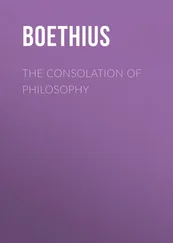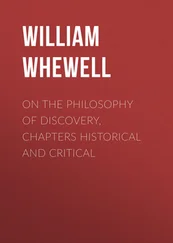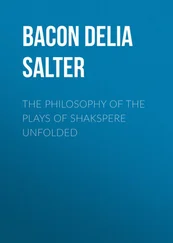The original question does not itself ask whether it is metaphysically necessary, or knowable a priori , or analytic, or logically true that Mars was always either dry or not dry. It simply asks whether Mars always was either dry or not dry. Expressions such as “metaphysically necessary,” “knowable a priori ,” “analytic,” and “logically true” do not occur in the original question; one can understand it without understanding any such philosophical terms of art. This is of course neither to deny nor to assert that it is metaphysically necessary, or knowable a priori , or analytic, or logically true that Mars was always either dry or not dry. For all that has been said, the proposition may be any combination of those things. But that is not what the original question asks.
In other circumstances, we could have answered the original question on philosophically uninteresting grounds. For instance, if there had never been liquid on Mars, then it would always have been dry, and therefore either dry or not dry. In order to pose a question which could not possibly be answered in that boring way, someone who already grasped one of those philosophically distinctive concepts might ask whether it is metaphysically necessary, or knowable a priori , or analytic, or logically true that Mars. The meaningfulness of the philosophical jargon might then fall under various kinds of suspicion, which would extend to the question in which it occurred. But the original question itself cannot be correctly answered in the boring way with respect to the originally envisaged circumstances. Its philosophical interest, however contingent, is actual.
We could generalize the original question in various ways. We might ask whether everything is always either dry or not dry. Then we might notice that discussing that question is quite similar to discussing whether everything is either old or not old, and so on. We might, therefore, ask whether for every property everything either has it or lacks it. The coherence of such generalizing over properties might itself fall under various kinds of suspicion, which would extend to the question in which it occurred. Someone might even doubt whether there is such a property as dryness. But the original question itself does not attempt such generality. That it has the same kind of philosophical interest as many other questions does not imply that it has itself no philosophical interest. If that interest is obscured by problematic features of the apparatus with which we try to generalize it, we can refrain from generalizing it, and stick with the original question. In order not to be distracted by extraneous issues that arise from the apparatus of generalization, not from the original question, we do best to stick with the original question in its concrete form. 3We can still help ourselves not to be distracted by unimportant features of the question, if we remember that there are many other questions of a similar form.
What is the original question about? “About” is not a precise term. On the most straightforward interpretation, a sentence in a context is about whatever its constituents refer to in that context. Thus, taken at face value, the original question is about the planet Mars, the referent of “Mars” in this context; perhaps it is also about dryness, the referent of “dry,” and the referents of other constituents too. Since the original question contains no metalinguistic expressions, it is not about the name “Mars” or the adjective “dry.” Evidently, the original question is not explicitly about words.
Is the original question implicitly about language? Someone might claim so on the grounds that it is equivalent to questions that are explicitly about language, such as these:
Is the sentence “Mars was always either dry or not dry” true? (Does it express a truth as used in this context?)
Did Mars always belong either to the extension of the word “dry” or to the anti-extension of “dry” (as the word “dry” is used in this context)? (1970: 11).
But parallel reasoning would lead to the conclusion that the unphilosophical question “Was Mars always either uninhabited or not dry?” is also implicitly about language, since it is equivalent to these questions:
Is the sentence “Mars was always either uninhabited or not dry” true? (Does it express a truth as used in this context?)
Did Mars always belong either to the extension of the word “uninhabited” or to the anti-extension of “dry” (as the word “dry” is used in this context)?
Indeed, we could make parallel arguments for all everyday and scientific questions. Since they are not all about language in any distinctive sense, the reasoning does not show that the original question was about language in any distinctive sense. Even if the equivalences did show that the original question was in some sense implicitly about language, they could be read in both directions: they would also show that the explicitly metalinguistic questions were in an equally good sense implicitly not about language.
The equivalences between the questions are in any case uncontroversial only if the corresponding disquotational biconditionals are:
(T1) “Mars was always either dry or not dry” is true if and only if Mars was always either dry or not dry.
(T2a) For any time t, Mars belongs to the extension of “dry” at t if and only if Mars is dry at t.
(T2b) For any time t, Mars belongs to the anti-extension of “dry” at t if and only if Mars is not dry at t.
On the face of it, these biconditionals express at best contingent truths. For perhaps the word “dry” could have meant wet , in which case Mars would have belonged to the extension of “dry” when wet and to the anti-extension of “dry” when dry: for we use the word “dry” to mean dry even when we are talking about circumstances in which it would have meant something else, because we are not talking in those circumstances. If so, T2a and T2b do not express necessary truths. Similarly, perhaps the sentence “Mars was always either dry or not dry” could have failed to express a truth even though Mars was always either dry or not dry, since “always” could have meant never . On this reading, T1 does not express a necessary truth. We should not assume that a useful notion of aboutness would transfer across merely contingent biconditionals. Perhaps we can instead interpret T1, T2a, and T2b as expressing necessary truths by individuating linguistic expressions so that their semantic properties are essential to them; whether that requires treating the quoted expressions as necessary existents is a delicate matter. In any case, some theorists of vagueness have denied even the actual truth of biconditionals such as T1, T2a, and T2b; they might respond to the original question in one way and to the explicitly metalinguistic questions in another. 4Thus the questions are not pragmatically, dialectically or methodologically equivalent within the context of debates on vagueness. For present purposes, we need not resolve the status of the disquotational biconditionals, because we have already seen that the sense in which they make the original question implicitly about words is too indiscriminate to be useful.
We can argue more directly that the original question is not implicitly about the word “dry” by appeal to a translation test. For consider the translation of the original question into another language, such as Serbian:
Da li je Mars uvek bio suv ili nije bio suv?
The Serbian translation is not implicitly about the English word “dry.” But since the questions in the two languages mean the same, what they are implicitly about (in the same context) should also be the same. Therefore, the original question is not implicitly about the word “dry.” By similar reasoning, it is not about any word of English or any other language. Of course, given the informality of the notion of implicit aboutness, the argument is not fully rigorous. Nevertheless, the translation test emphasizes how far one would have to water down the notion of reference in order to reach a notion of implicit aboutness on which the original question would be implicitly about a word.
Читать дальше












